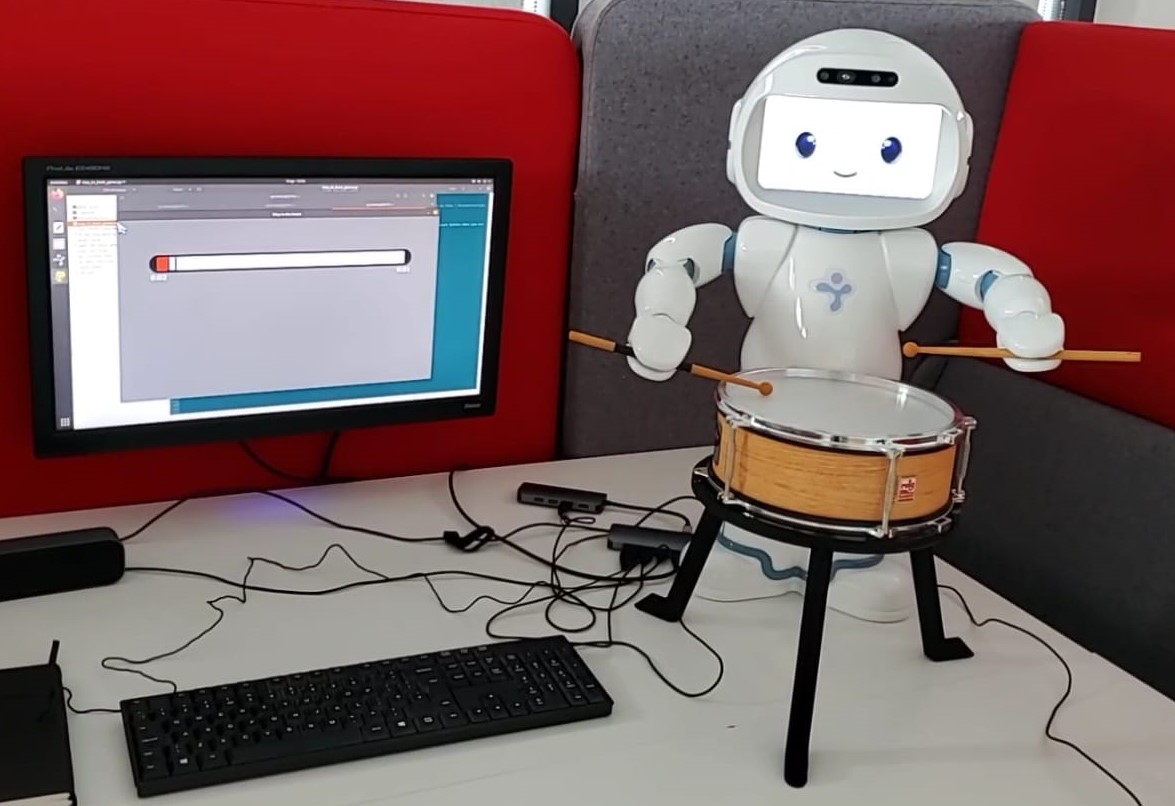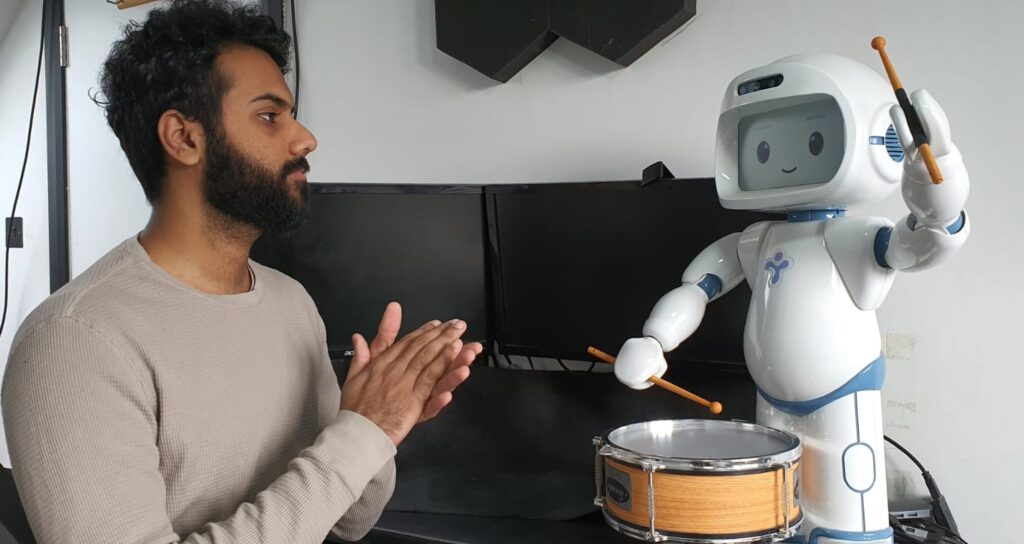The chance to do a PhD came sooner than expected for Jwaad Hussain, a Robotic Engineering student at Middlesex University. After taking the plunge, Jwaad shares why it’s important to be motivated by the research question when considering whether a PhD is right for you.

Helping to build research capacity in healthy ageing feels like a ‘two-for-one’ to me because I’m contributing towards people’s wellbeing and building new knowledge
My unusual route into a PhD
Most PhD students get to pick the research project they do, but my PhD found me. Soon after finishing my undergraduate degree, I was approached by Dr Fabia Franco and Dr Eris Chinellato and asked if I was interested in doing a PhD with the MusiCare project team to help develop new tools for delivering music therapy to older people. I had to ask myself, is healthy ageing research something I’m interested in? And it was!
As part of the MusiCare project, I’m responsible for designing musical, cognitive games and coding QTrobots to play these games with older people. My research focus is how to optimise the robots to work with older people, especially those with cognitive impairments, so participants can take part in robot-led music therapy.

When thinking about whether a PhD is right for you, it’s really important to be motivated by the research question and do something that interests you
The big question: is this research important to you?
I’ve always wanted to be part of advancing knowledge, which is why I went into studying engineering, and I also want to contribute towards better health, care and quality of life. Helping to build research capacity in healthy ageing feels like a ‘two for one’ to me because I’m contributing towards people’s wellbeing and building new knowledge.
When thinking about whether a PhD is right for you, it’s really important to be motivated by the research question and do something that interests you. During a long and challenging PhD, you can often lose sight of the end goal and your personal connection with the research. To help keep the spark alive, PhD students should keep adding new reasons for why they’re interested in what they’re researching to help keep them motivated when things get tough.
Expect intense training
If you want to challenge yourself, a PhD is definitely something you should consider.
For a start, the learning curve is steep. I went straight from being an undergraduate into my PhD without doing a Master’s degree, so I had a lot to learn about research methodology. I’ve also had to get to grips with the non-engineering aspects of MusiCare such as psychology and neuropsychology.
I’m really lucky to be part of delivering the trial alongside Dr Anthony Mangiacotti, the MusiCare project post-doctoral researcher. This has given me great real-life experience of working with research participants, and as part of an interdisciplinary network, which I’ll use in the future when I begin to lead my own studies.

A PhD will also take you out of your comfort zone. For me, this was speaking about the MusiCare Project at the Middlesex University’s Research Students’ Summer Conference 2021. Despite being very new to the field, I was listed for delivering an outstanding oral presentation – something that I achieved again the following year.
Why do a PhD?
I’m really thankful to The Dunhill Medical Trust for funding me to do this research.
My PhD is helping me to work out what I want to do next. During my degree, I always thought I’d go into a purely technical job. But now that I’m working half on technical work and half on research, I think I’d like a career that allows me to do both.
A DMT-funded PhD also comes with a lot of networking and events to support students, and I’m looking forward to getting more involved in their community over the coming year.
Find out more
If you are an early-career researcher funded on a DMT grant and are interested in joining our Early Career Researcher Network, then email [email protected]
If you would like to learn more about Jwaad’s work and the MusiCare project then you can visit the project webpage.

